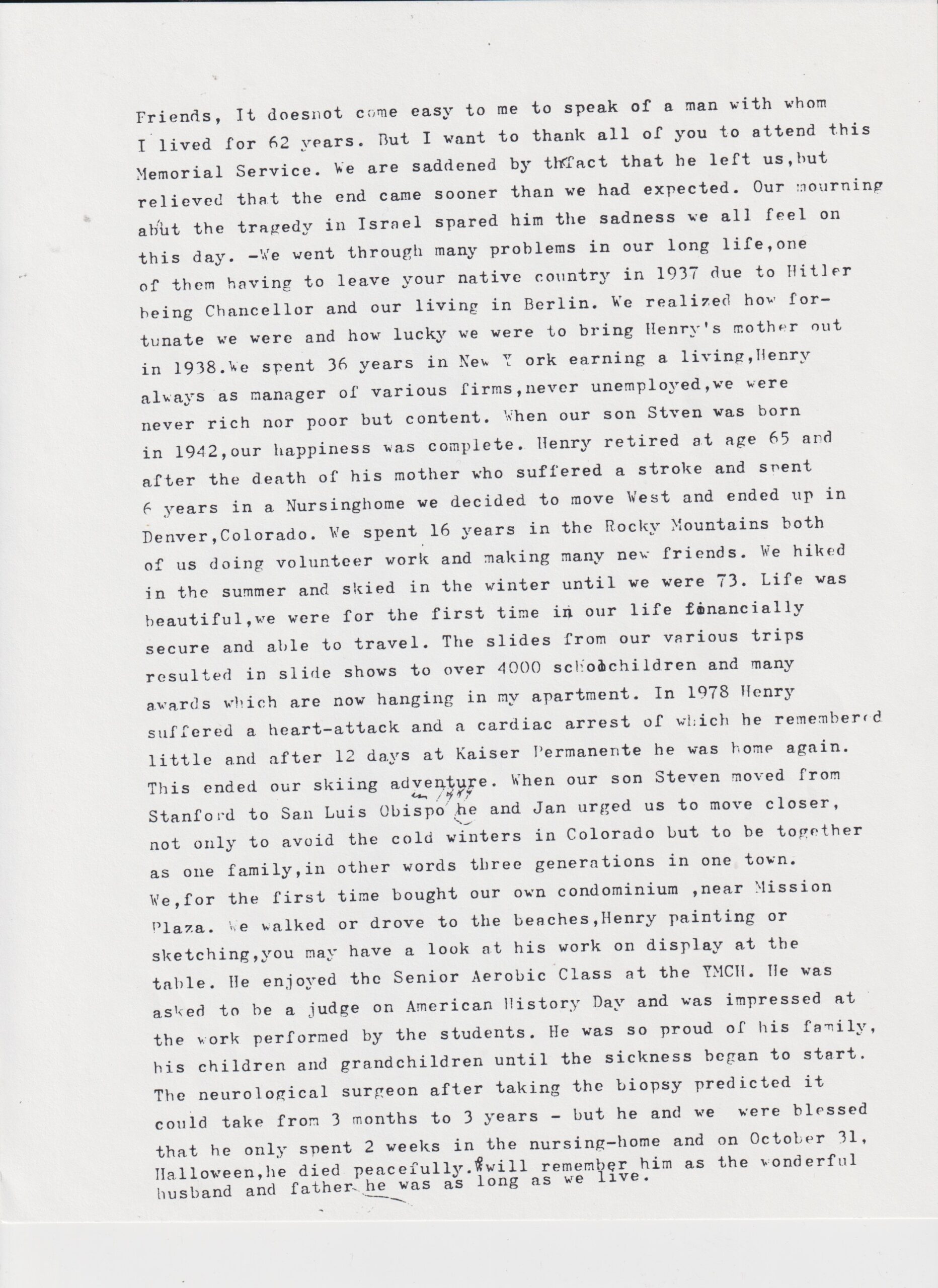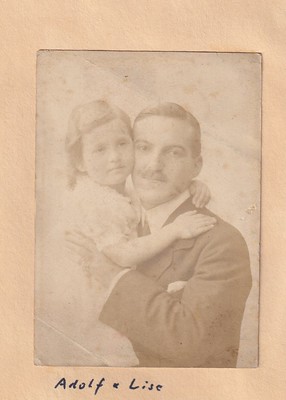Welcome and thanks for coming today, on behalf of Lise, Henry’s wife, Jan his daughter in law, Joe and Claire, his grandchildren. I’m Steven, his son.
We’ve been amazed by the magnitude of the public tribute to him and the outpouring of sympathy and appreciation–from Denver, where he lived for fifteen years before moving to San Luis Obispo, from New York, from all around the world.
He was a little guy with a large presence; Paula Huston said to me the other day that he’ll be missed by the whole county. Another colleague, Barbara Hallman came up to me yesterday to express condolence with tears in her eyes. I asked her how she knew him. “His letters to the paper, I’ll miss them,” she said.
Grief makes you want to retreat and hide to nurse your wound. Its hard to share with so many people in so public a way.The good and pure memories we want to hoard, the jealous and critical feelings we want to hide, and the stupefying mystery of death itself we want to deny.
But Jan and Lise and I nevertheless decided on the day he died to hold this gathering. For the immediate family, it’s a way to distribute the pain, it’s asking for your comfort, it’s an antidote for our tendency to withdraw into isolation
For all of us, its a chance to make up for some of the loss we feel to our community by pooling our regard for Henry and building a lasting monument to him in our memories.
The reason we’re in the Y today is not only because of the graciousness of the managment and the fact that it has a large room and lots of parking space. Henry used to say that going to senior aerobics at the Y twice a week was his religion. He was only half joking.
Since his adolescent involvement with the German youth movement, he believed in worshipping the temple of the body. Fitness was his credo. He treasured his health, and he saw that maintaining it was his own business. Working out here made him feel good and counteracted his tendencies toward depression about current events. The idea of senior aerobics fit his attitude toward old age and the approach of death in general–affirming what you still have, rather than regretting what you’ve lost.
The first tolling of his bell occurred here. Heading home for lunch after his workout on May fifth, he drove out of the parking lot, down Southwood, Laurel Lane and Orcut to the intersection and then made a left turn instead of a right on Broad street. An hour later, the Park Rangers found him disoriented, spinning his wheels near the ocean in the Nipomo dunes.
After they brought him home, he had a series of seizures, but with medication and a couple of weeks rest, he was recovered enough to be back in this room on a regular schedule, and in July, he insisted that I join him one day to exercize and to meet his friends.
I came back here with Henry in mid October. Two weeks after being diagnosed with terminal brain cancer, he was staying in the Cabrillo nursing home, a block away, on Augusta Street. It was a warm afternoon and I took him out in a wheelchair to the nearest place one could appreciate the air and see some green. It was the park right outside. We sat together in the shade of the Eucalyptus trees and talked about native and imported plant species, about medicare, about the privilege of living in this town. It was our last sustained conversation, the last time he was out of bed.
I felt blessed to be able to take many farewells from my father during his monthlong departure from this world. One of the most memorable occurred when he talked about his grandparents, and how their presence was so strong with him during those last days. Then he cried bitterly and said he didnt want to die. Without thinking, I replied that he would remain, just as his grandparents existed in him at that very moment. He nodded and pulled me to him. With all of us here now I say, goodbye Henry, and I say you are still here in the memories and the legacy of the good you leave behind.




